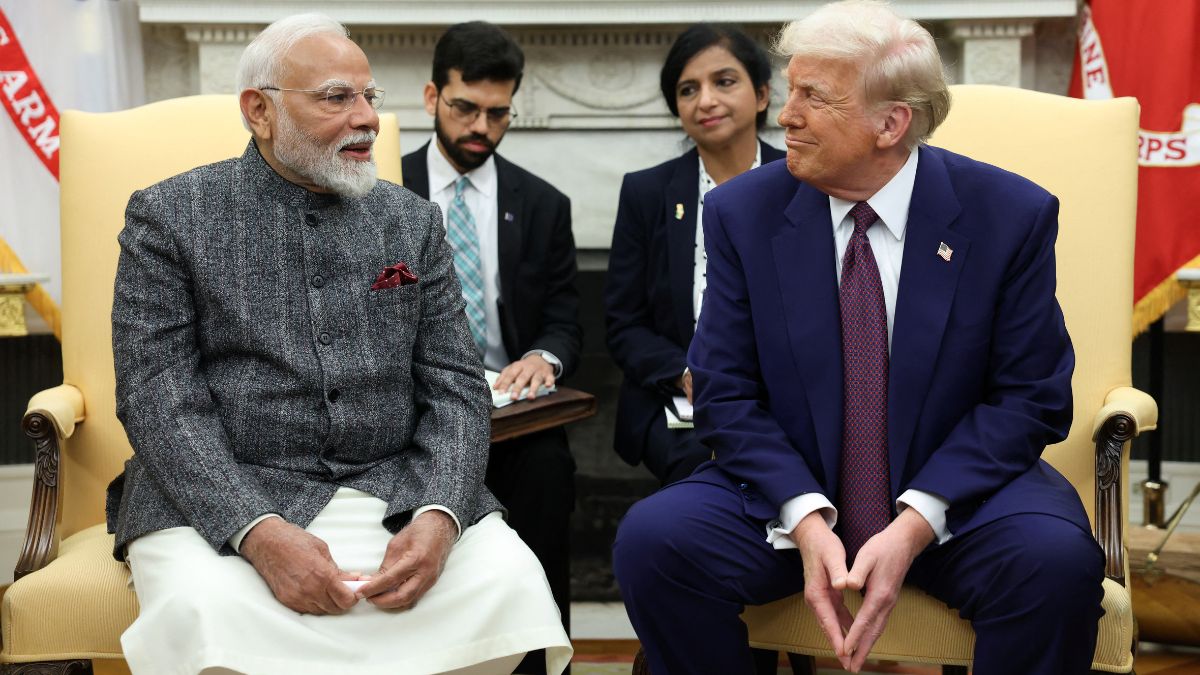India is considering floating a support package for exporters affected by US President Donald Trump’s tariffs, Firstpost has learnt.
Trump has slapped India with 50 per cent tariffs. He announced 25 per cent tariff on July 31 as part of the rollout of tariffs on more than 60 countries. He topped that with additional 25 per cent tariff on India on Wednesday over the purchase of Russian oil.
Analysts have said that Trump’s tariffs could drag the Indian GDP growth well below the 6 per cent-mark this year. While many labour-intensive sectors are set to be affected, the most vulnerable sectors include marine products, edibles, and textiles, among others.
In such a scenario, the Government of India is considering floating a support package for exporters to make up for the losses that they may incur from loss of exports because of tariffs, Firstpost has learnt.
The support package is part of a broader set of proposals under consideration that includes incentives like new subsidies, easing access to credit, and easing the regulatory and compliance scenario to minimise expenses and promote diversified exports.
India can use savings from the purchase of discounted Russian oil to support exporters affected by American tariffs, which will give leverage to India regarding both Russia and United States, according to Prof. Ram Singh, a scholar of international trade and business at the Indian Institute of Foreign Trade (IIFT).
Singh tells Firstpost, “India can ask Russia for more discount on oil and use substantial savings from the purchase of cheaper Russian oil to push a support package for exporters that are most vulnerable to American tariffs, such as those exporting marine products like shrimps and prawns. Along with the diversification of exports, this could give India leverage in negotiations and exporters a breathing room.”
Impact Shorts
More ShortsIndia braces to avoid the worst hit of Trump’s tariffs
In the immediate future, sectors that are most vulnerable to American tariffs are marine (shrimps, prawns, etc), edibles (seasonal fruits, pickles, etc), and textiles, because they are perishable and have low shelf-life in case of shrimps and prawns and are labour-intensive with low profit margines in case of textiles, says Singh.
Moreover, these are also sectors that are politically sensitive as agriculture, fisheries, dairy, and textiles are labour-intensive sectors. As a large section of the country depends directly and indirectly on these sectors, any disruption could have widespread sociopolitical consequences.
ALSO READ: Trump’s 50% tariffs could drag Indian GDP growth below 6% — here’s what analysts say
In fact, one point of contention between India and the United States has been Trump’s push for the inclusion of agriculture, dairy, and genetically modified (GM) crops in the trade deal. On its part, India has sought to exclude politically sensitive sectors of dairy and agriculture from the bilateral trade agreement under negotiations — just like these sectors have been excluded in trade deals with other countries like the United Kingdom.
Moreover, GM crops —with the single exception for cotton— are illegal in India so India has sought to keep them outside of any trade deal.
Singh tells Firstpost, “In addition to the government’s financial package, exporters have been advised lately to frontload their consignments to the United States before the staring date for tariffs. The American sales are highest in November and December because of Thanksgiving, Christmas, and New Year holidays. Exporters have been advised to frontload their consignments meant for these holidays.”
Madhur Sharma is a senior sub-editor at Firstpost. He primarily covers international affairs and India's foreign policy. He is a habitual reader, occasional book reviewer, and an aspiring tea connoisseur. You can follow him at @madhur_mrt on X (formerly Twitter) and you can reach out to him at madhur.sharma@nw18.com for tips, feedback, or Netflix recommendations
)